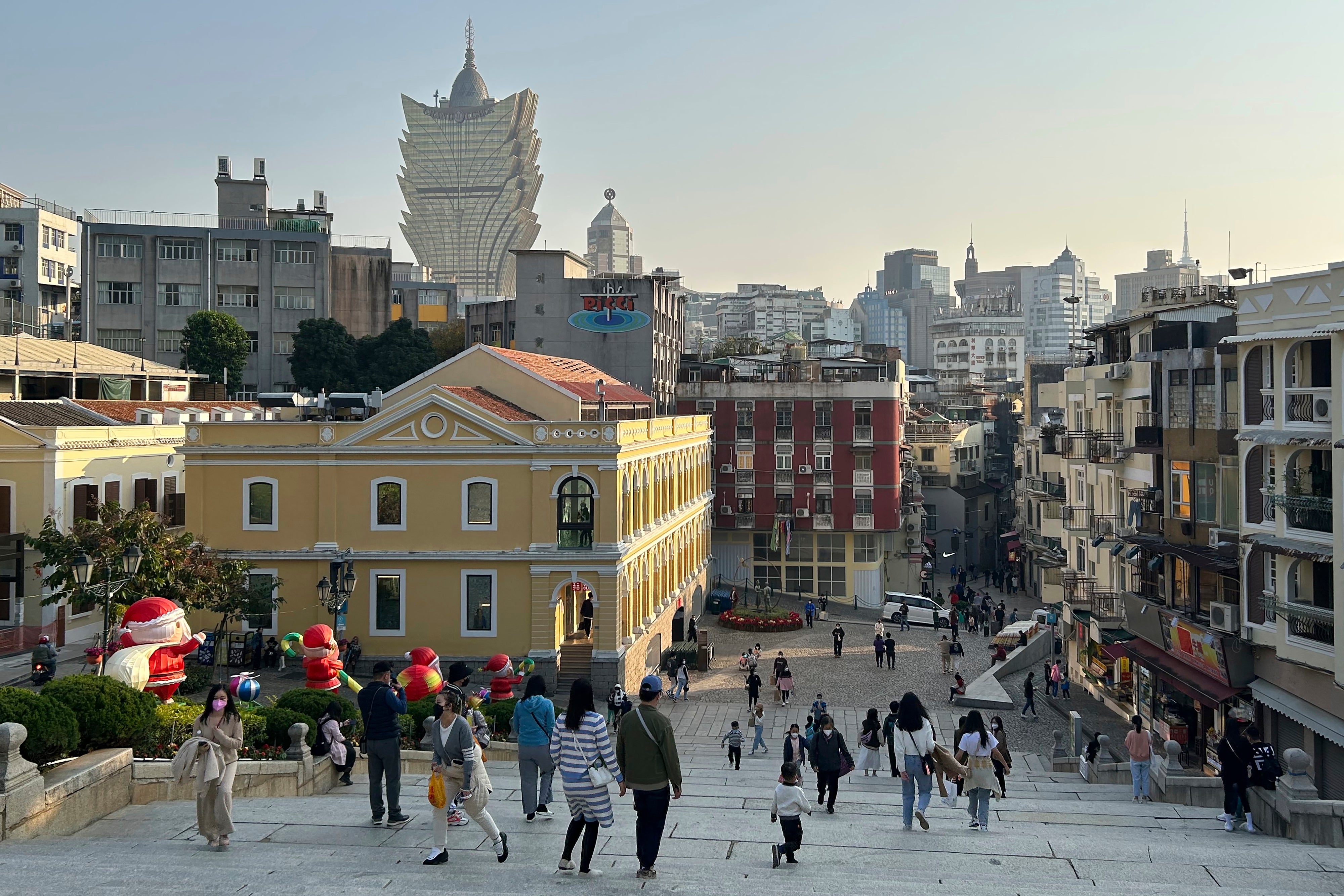Macao eases COVID mask mandate as virus situation stabilizes
Macao, the world's biggest gambling hub, is easing its requirements for people to wear masks that had lasted most of the COVID-19 pandemic

Macao, the world’s biggest gambling hub, has eased its requirements for people to wear masks after mandating them for most of the COVID-19 pandemic.
Starting Monday, people no longer have to wear masks when outdoors, the statement by authorities in the Chinese territory said. They’ll still be required in places like elderly care homes and hospitals and on public transit, but indoor venues such as casinos have the discretion to decide themselves whether to require masks.
The statement said the policy was eased because the virus situation in Macao “has continuously remained stable for the past two months.”
In neighboring Hong Kong, authorities last week extended its mandate until March 8 to reduce the spread of respiratory viruses in cold weather, although they have signaled they may ease the requirements soon. Violators of the mandate requiring masks be worn in indoor and outdoor public areas can be fined 5,000 Hong Kong dollars ($637) on the spot.
Both territories had followed China’s “zero-COVID” strategy using travel restrictions and quarantines to try to stamp out the virus for much of the pandemic. The strategy was abandoned late last year as more virulent viral strains spread.
Both cities later reopened to tourists, and China on Jan. 8 dropped mandatory quarantine for inbound travelers.
Bookmark popover
Removed from bookmarks